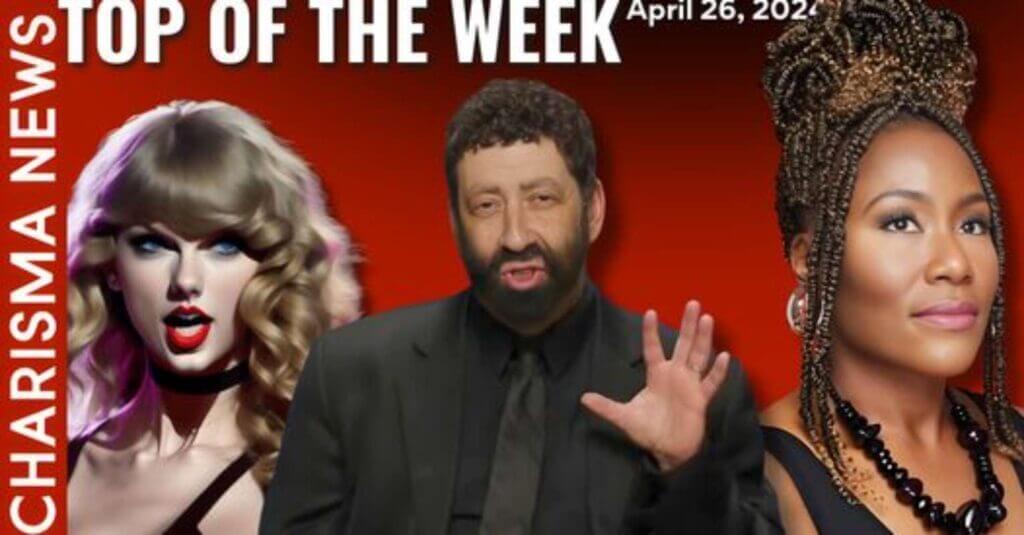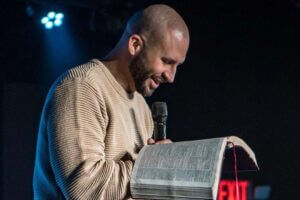This weekend, leaders of the United Methodist Church (UMC) will convene to vote on whether or not the United States’ second-largest Protestant denomination will allow same-sex marriage and ordained LGBT clergy. The vote—which is the culmination of several years of interdenominational conflict—may fracture the UMC, no matter which side wins.
The UMC has remained opposed to same-sex marriage and ordaining LGBT individuals as clergy, even as several pro-LGBT clergy members have spoken out against this policy. Official UMC policy remains unchanged since 1972, when the denomination said “the practice of homosexuality is incompatible with Christian teaching.” Yet Individual churches have begun to rebel against the larger organization. The Associated Press reported that ministers have in recent years come out as gay from the pulpit or conducted same-sex marriages at UMC churches.
These divisions will be resolved at the 2019 special session of the UMC General Conference in St. Louis. From Saturday through Tuesday, a mix of 864 lay people and clergy members will discuss the denomination’s future and vote on a new churchwide policy. The church will approve one of three plans, described best by the Religion News Service’s Emily McFarlan Miller:
One Church Plan
The first of 17 petitions that would enact bishops’ recommended plan begins with the words, “We agree that we are not of one mind regarding human sexuality.”
The One Church Plan acknowledges “persons of good conscience” can interpret what Scripture says about sexuality differently. It affirms both those who believe it does not “condone the practice of homosexuality” as well as those who believe it “calls us to reconsider the teaching of the church with respect to monogamous homosexual relationships.”
Related petitions would amend the Book of Discipline to remove the language about incompatibility with Christian teaching and marriage being limited to a man and woman. They would allow regional decision-making bodies called annual conferences to determine whether to ordain LGBTQ clergy and allow individual churches to vote whether to perform same-sex marriages in their buildings. They also would clarify that no clergy would be required to perform a same-sex marriage and would allow them to transfer or be reassigned if their beliefs conflict with those of their churches.
Bishops could not prevent or require a pastor or church to perform a same-sex marriage under the plan, and they would not be required to ordain LGBTQ clergy, who could be ordained instead by the larger jurisdictional conference’s College of Bishops.
Traditional Plan
The Traditional Plan would clarify what is meant in the Book of Discipline by a “self-avowed practicing homosexual.” That would include those who have publicly stated or told clergy they are “a practicing homosexual,” or those in a same-sex marriage, domestic partnership or civil union.
It would make a way to recommend a bishop for an involuntary leave of absence or retirement and a Council Relations Committee to hear those requests, creating a “process by which the Council of Bishops may hold one another accountable.” And it would strengthen current complaint procedures and penalties in the Book of Discipline.
It also would include language that bishops are not allowed to consecrate, ordain or commission “self-avowed homosexuals” even if they have been elected or approved by the appropriate church body, and it would require bishops to sign a statement certifying, “I will uphold United Methodist standards on marriage and sexuality in their entirety.” If they do not, they would be subject to review by the Council Relations Committee.
As part of the process to determine whether to ordain a candidate, the plan says the Board of Ministry “shall conduct an examination to ascertain whether an individual is a practicing homosexual, including information on social media.”
A church or annual conference that differs in its beliefs about sexuality would be allowed to leave the denomination to form its own “self-governing Methodist church,” and clergy would be allowed to transfer to those churches.
Connectional Conference Plan
The Connectional Conference Plan would create new connectional conferences from the denomination’s existing jurisdictional conferences inside the U.S. and central conferences around the world. Central conferences either could become their own geographically based connectional conferences or vote to join one of three “theologically based” connectional conferences in the U.S., which would align like-minded congregations on matters of sexuality.
The plan would include sections regarding sexuality in the parts of the Book of Discipline that those connectional conferences could change or adapt to “more fruitfully accomplish our mission in various contexts.”
The so-called Traditional Connectional Conference would define marriage as between one man and one woman, would not allow same-sex weddings or LGBTQ clergy and would express a “covenantal commitment to a more traditional understanding of the doctrinal and moral standards of the church with enhanced accountability.” Like all proposed connectional conferences, it would choose its own name later.
The Unity Connectional Conference would acknowledge members “are not of one mind regarding biblical interpretations related to human sexuality.” Clergy would be allowed, but not required, to perform same-sex weddings. Similarly, annual conferences could decide to ordain LGBTQ clergy, and local churches could decide to receive them.
In the Progressive Connectional Conference, all clergy would perform same-sex weddings, all annual conferences would ordain qualified LGBTQ clergy and all churches would welcome LGBTQ pastors who “match the needs of the congregation and its ministry.”
See an error in this article?
To contact us or to submit an article



















